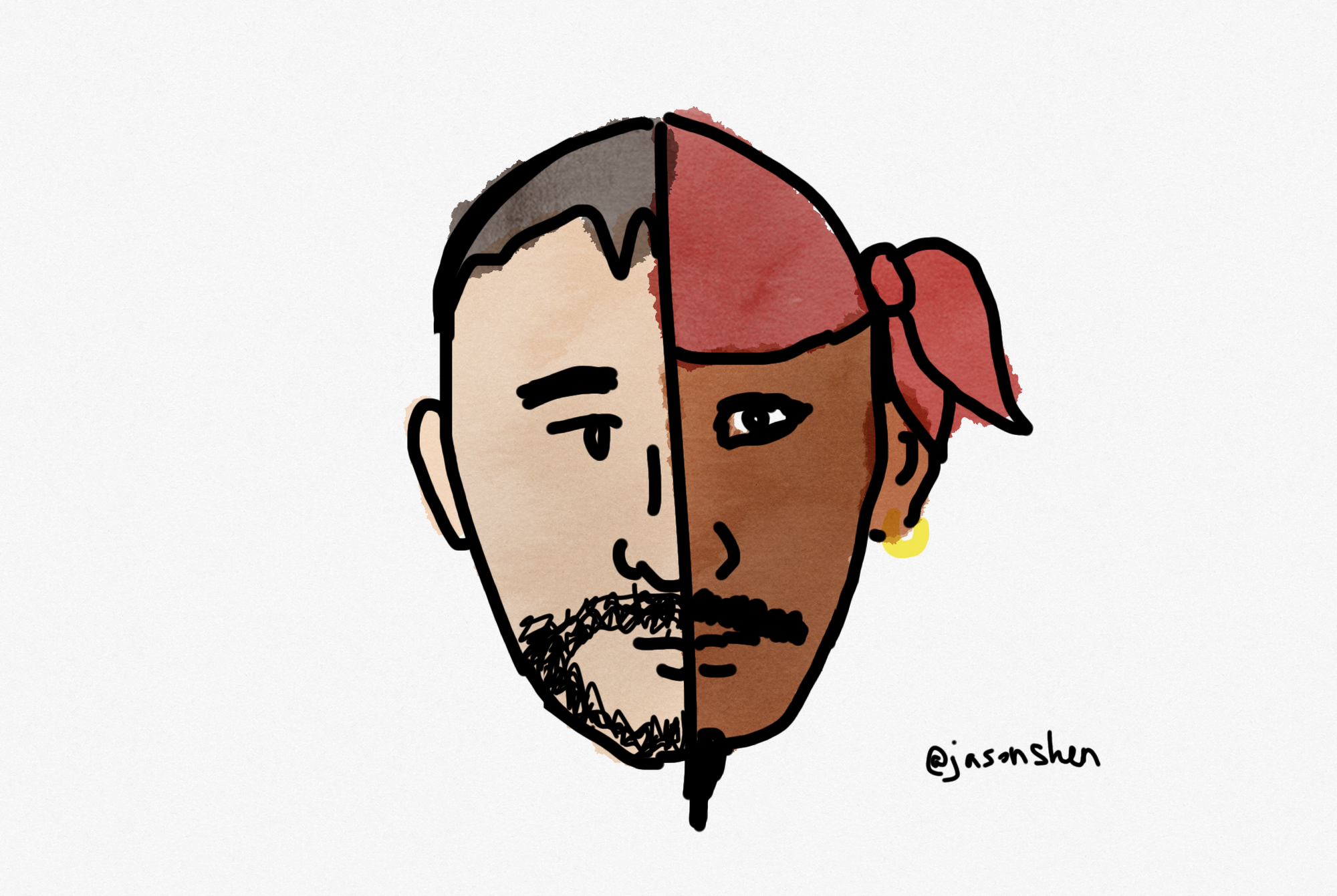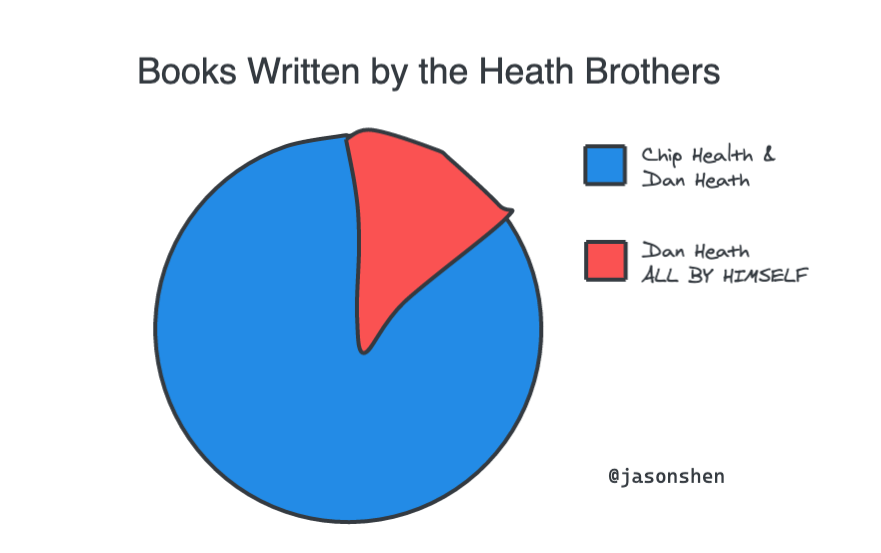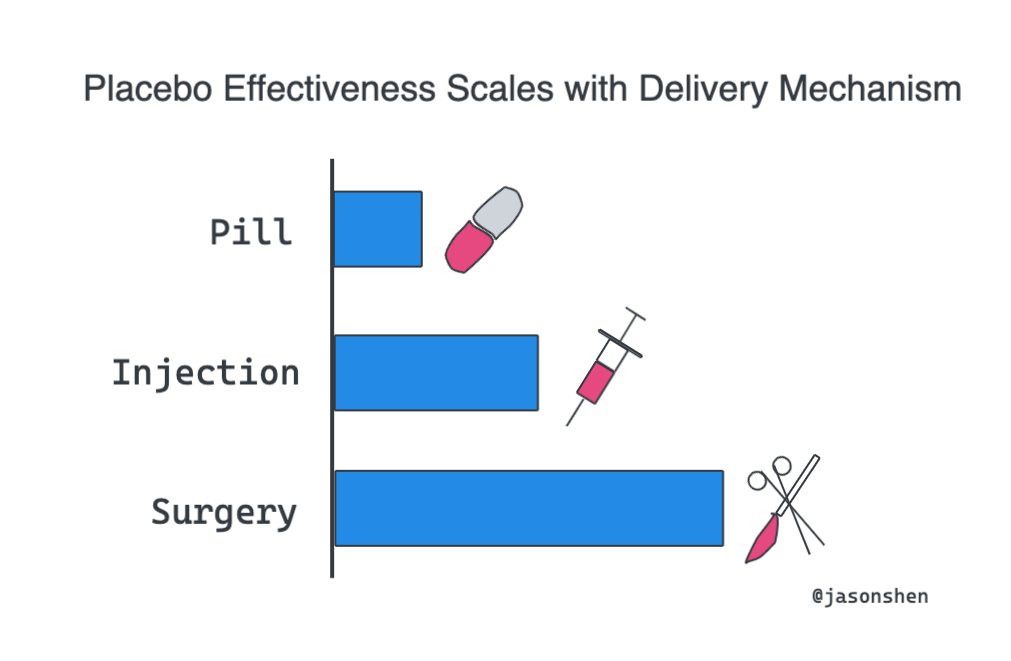Howdy folks,
Happy Saturday! This is the 15th edition of Making Connections, where we take a random (illustrated) walk down tech, fitness, product thinking, org design, nerd culture, persuasion, and behavior change.
My little sister is visiting me before she heads back up to Cornell for her senior year this weekend!
1. 🎼 Patterns of Creatives

Visakan notes in Spielberg biography that before the director made E.T. and Close Encounters, he made Firelight. His first feature film was about a UFO, alien invaders, a fragile home life, and an isolated youngster.
Similarly Andrew So notes that Hans Zimmer borrows many of his own themes between movies, like between 1989’s Black Rain and 2008’s The Dark Knight. More blatantly, there are also similar themes between 2000’s Gladiator and 2003’s Pirates of the Caribbean.
cool! it's funny that directors develop certain visual style, but when composers do it ppl think it's "derivative"
— ⚡️ Andrew So⚡️ (@AndrewDixonSo) August 4, 2020
but there's an older precedent for composers to carry themes throughout their body of work
Andrew makes a great point—it’s natural to see patterns or themes in your work and often times people take on a variety of projects that reflect and iterate on those patterns in different ways. This newsletter is an evolution of a blog I used to run, and before that I had a Tumblr and a Xanga and an Asian Avenue.
What patterns of creativity have you experienced?
2. 👯♂️ Sibling Author Rivalry?

I'm a big fan of business and pop psychology books. One of the best in the genre were the books by the Heath Brothers, Chip and Dan. Key word: were. They lived on opposite sides of the country, Chip at Stanford, Dan in North Carolina, and their first book, Made to Stick, was an instant classic.
They coined a concept, about ideas that stick having a couple of key attributes: simple, unexpected, concrete, credible, emotional, and story driven. They had all kinds of interesting, memorable stories and wrapped them up in neat lessons. They would remind you of the stories later in the book - "remember that we have to 'open the lid' of the idea". I made that one up but you get the picture. I totally aspire to write books that are both as rigorous and readable as theirs.
The Heath brothers went on to write books about decision making, behavior change, and creating special moments. And then this latest book arrives, and it just says "Dan Heath". Whoa. What happened? Their website is heathbrothers.com! The band can't be broken up! Dan dedicates the book to Chip for "keeping me out of law school" and thanks him prominently in the acknowledgements, so... is everything good?
Was Dan resentful of doing all the writing work while Chip still got credit? Did Chip get sick and was unable to continue contributing to the book? Did Dan need the extra money? Did Chip not find this book topic interesting?
I find it so fascinating that they worked on so many books together only to split up. Is Dan pulling a Zane? A Beyonce? The truth is probably far more ordinary, but the mind is easily drawn to far more outlandish scenarios...
3. 💉 Placebos Are Wild

I find the idea of placebos so crazy. It's crazy that people don't talk about the power of placebos more. The idea that for some meaningful large segment of people, especially when dealing with mild issues like a headache or nausea or the like, taking a sugar pill can make you feel better (compared to nothing).
The fact that we have to run clinical trials where people are given real medicine, which took years and teams of researchers and millions of dollars to make, against inert substances that do nothing, and those drugs often don't have a meaningfully higher improvement for patients, is absolutely wild.
But more than that, what I love is how the effect of the placebo depends on its delivery mechanism. A fake pill can be helpful, but two big pills can do more. A fake shot has an even stronger effect, and a fake surgery, where they put you under, cut you open and pretend to do things before stitching you back up, is even more effective. In fact the New England Journal of Medicine published a paper in 2013 that found in 146 randomized, double blind trials of patients who thought they were undergoing meniscus surgery on their knee found no difference between the two groups.
"In this trial involving patients without knee osteoarthritis but with symptoms of a degenerative medial meniscus tear, the outcomes after arthroscopic partial meniscectomy were no better than those after a sham surgical procedure."
The power of the human mind to control the body is still barely understood. If you tell people they're experiencing a placebo, it still works. They did one study at Harvard Medical School looking at irritable bowel syndrome and the people who got "open label placebos" (they were told it was a sugar pill w/o any medication.) had a dramatic and significant improvements on their IBS symptoms compared to people who got nothing.
In this light, people who follow astrology or using healing crystals, listening to their favorite pump up song, following a pre-game ritual, etc are simply engaging in their own form of placebo.
Do you have any placebo stories to share?
Welp, that’s all for now. ✌️ Hope you enjoy yourself this weekend and we’ll talk again soon. As always, open to your thoughts and suggestions.
Jason

